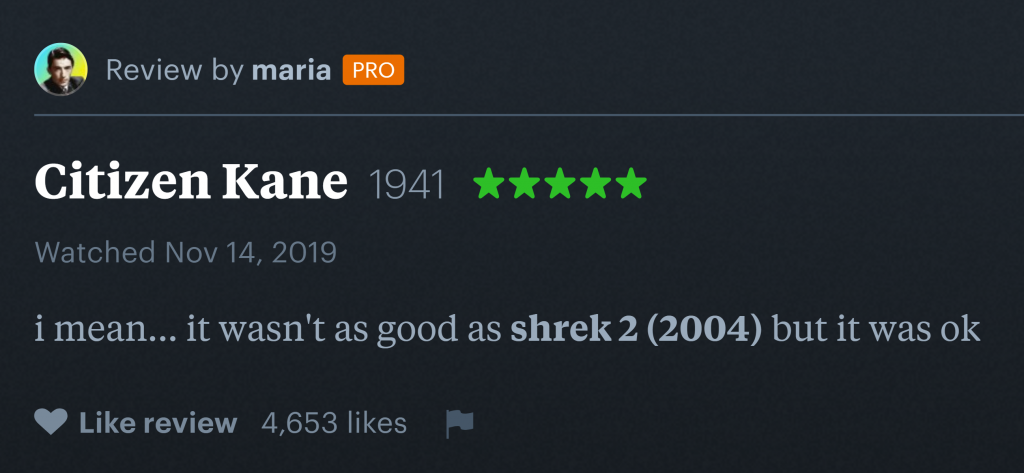
The most liked Citizen Kane review on social media site Letterboxd is clearly a joke. This joke landed for 4,653 people because it touches on a widely felt sentiment: Shrek 2 and Citizen Kane seem incomparable. Drama Citizen Kane is lauded by critics as the best of the best, while Shrek 2, a silly slapstick, is barely “Certified Fresh”. This joke is based on the assumption that comedy is at odds with intellectually and emotionally stimulating drama. Citizen Kane anticipates and makes use of this expectation.
As seen with Shrek 2, viewers take comedy less seriously. This can mean a viewer letting down her guard, or even paying less attention to the film. In Citizen Kane, Orson Welles overlays a serious dramatic narrative with comic acting and editing. This is especially apparent in the “Susan” narrative, as Kane’s taste for manipulation and control grows. The beginning and middle of the film should make this plot development obvious, but Welles piles on comedy so that dark plot points can still catch viewers off guard.
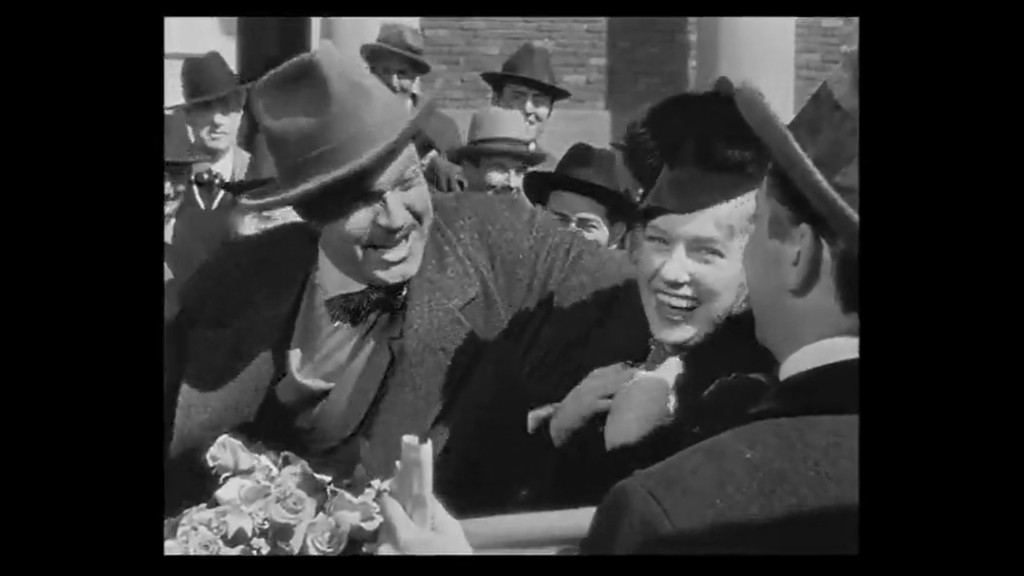
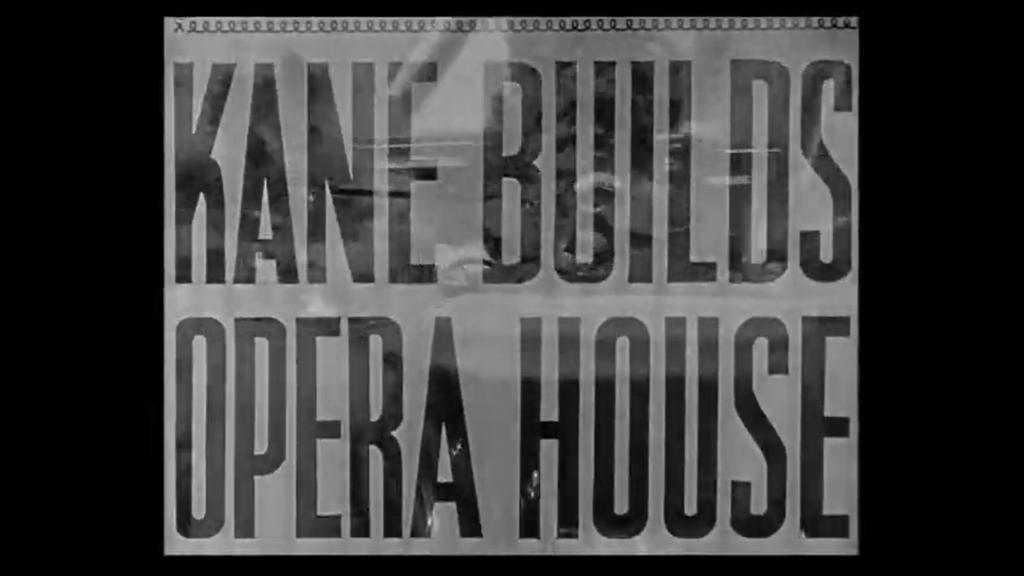
An example of Welles’ comic editing occurs in Jedediah’s flashback. Before the reporter has a chance to interview Susan, her narrative has begun. Susan and Kane are laughing in a carriage, ostensibly happy. Susan tells reporters that “Charlie said if I didn’t [go to this opera house], he’d build me an opera house.” She is smiling. Like the reporters, she clearly finds the idea ridiculous. Welles cuts to a newspaper with the headline “Kane Builds Opera House” right after this statement. This montage creates humor while the headline demonstrates Kane’s attempt to control Susan. Another comedic moment is created when Welles cuts between Susan’s performance and bored audience members. Both uses of montage make Kane’s downfall more disturbing by surrounding it with moments of humor.
Less funny, but still light, is the editing when Kane stands up and yells at Susan in the tent. He yells with fury, suggesting impending violence, before a bang sounds. Welles immediately cuts away to reveal that this bang was the result of outside merriment. This merriment distracts viewers and puts them at ease before the camera re-enters the tent. Though the audience was just watching the argument between Susan and Kane, it feels newly upsetting in wake of the brief party break.
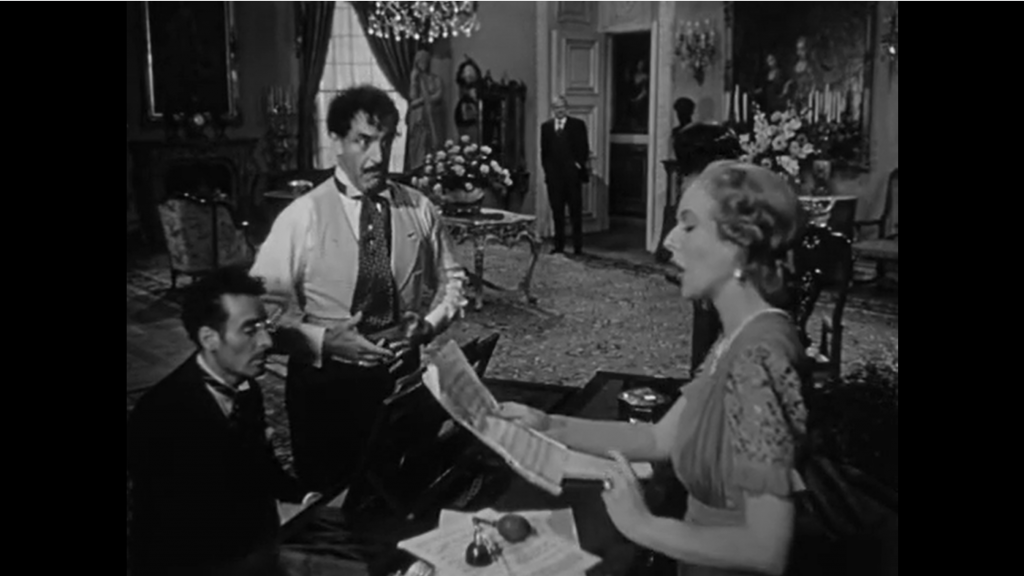
Welles complements his editing with the use of comic, over-the-top acting. The music teacher flails around as Kane quietly threatens his career, and Susan throws fits over Kane’s abuse. Many important plot points surface during Susan’s whining monologues. Kane receives his past principles in a letter from Jedidiah, and destroys them. The audience learns that Susan feels confined and neglected, even as she speaks in a ridiculous, brat-like manner. This manner of speech attempts to obfuscate Susan’s meaning. When viewers finally catch her meaning through this cloud, her situation seems doubly troubling.
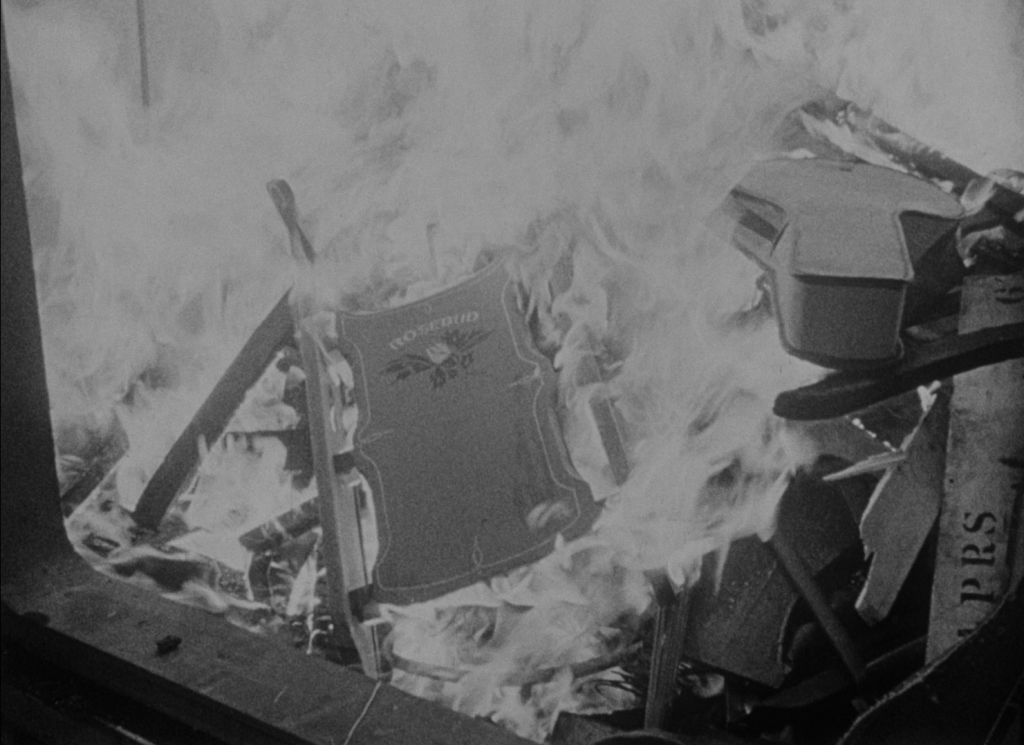
In addition to emphasizing the horror of Kane’s growing darkness, the absurd mix of drama and comedy also prepares the audience for the Rosebud reveal. While Rosebud’s identity is dramatically satisfying, the sled burning with other “junk” is wrong enough to make one laugh.
